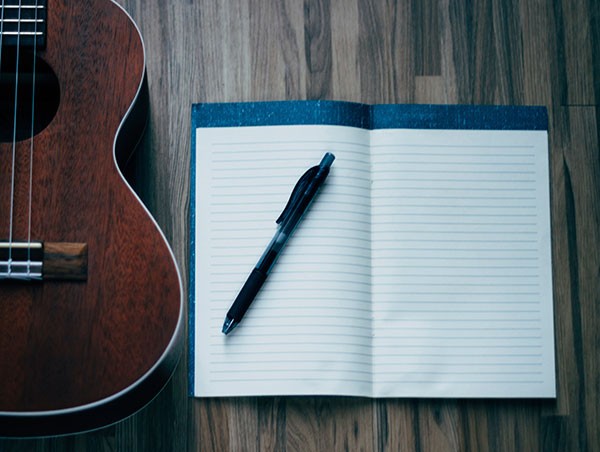Intro:
Sitting down to write a song can be a daunting process, so City Paper asked four local musicians to share their songwriting advice and their own experiences with the craft.
I draw inspiration from other people's work, usually a sentence or passage from a book, or someone else's song or lyric that has affected me in some way. I don't like to rush or force things, so it may take me several minutes or several weeks. When I have the words down, subject to editing, I generally practice first without music as I am of firm belief in the power of words. They shape the world we live in, and if the words are truth, they should be able to stand on their own without accoutrement to be understood and felt. If your words have power, they will move. Next, I usually practice it over different music, rhythms, etc., to open up vocal possibility and option of style to the point I can "breathe" the lyrics naturally, no matter the backing music. I always work on multiple projects at once so I don't get stagnant.
— Billy Pilgrim, hip-hop artist, as told to Carolyne Whelan www.rashadjamaalisbillypilgrim.com
The best songs are honest songs. Whether you're telling the truth or not from your own deepest heart ... there's kind of an honesty that can shine through a lyric in any song. Try to find your own story, and be as true and bold as you can possibly be in telling it. Just give yourself that permission to express that story that only you can express. When you're being your most honest and your most free, it's bound to resonate [with] people. Try not to chase the fad of the moment or write a hit song: Find your own thing, because whatever you're trying to be, it will change in two seconds."
— Bill Deasy, singer-songwriter, novelist and former frontman of The Gathering Field, as told to Shawn Cooke www.billdeasy.com
Figure out your motive: Are you writing for yourself? For someone else? With others? I think songwriting is an iterative process that changes over time. If you hear something, put it down, whatever form it is in. Analyze the song structures of those you admire, listen to their instrumentation, find what you can do differently and take chances. If you are a lyrical writer, jot down your thoughts, even the sordid ones. Especially the sordid ones. Don't be afraid to make mistakes, there is no perfection; it's fine to leave [a song] behind and move on, but try to follow it through, even if you think it sucks. Sucking leads to awesome, and inevitably back to sucking, and then rinse, repeat.
— Shani Banerjee, genre-spanning singer-songwriter and multi-instrumentalist, as told to Margaret Welsh (via email) www.shanibanerjee.com
I like to listen to the beat first. To get the best feeling and capture the emotion for a song, I, at least, have the music mostly prepared. Sometimes when I work on songs and the beat gets changed too much later, it loses some of the feeling that I felt when I rapped the verses. Another thing I do is mumble: This is kind of weird, but a lot of people do this. Once [I] have the beat down, I brainstorm for a while and listen to it on repeat like 10 times. Sometimes I start writing right away if it comes to me. But I start usually [by] humming melodies first, try out different deliveries — then I figure out the cadence, and then I figure out the words.
— Hip-hop artist Beedie, as told to Trevor Leard www.beedieland.com



















